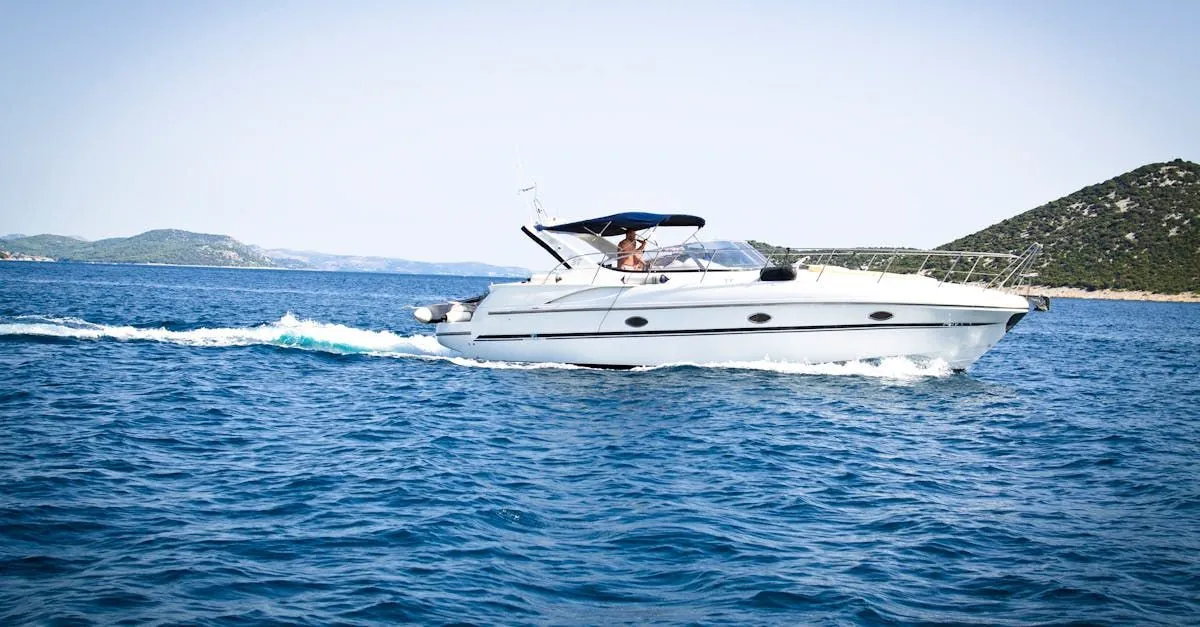Boating is a beloved pastime across the United States, offering relaxation and adventure on the water. However, recent statistics reveal a sobering reality: boating accidents are on the rise, largely due to operator negligence and inexperience. As we delve into the latest data from 2024, provided by authoritative sources like the U.S. Coast Guard, it’s clear that understanding these statistics can be crucial for all boaters.


- Surge in Boating Fatalities
- Economic Impact and Damages
- Role of Boating Safety Education
- Alcohol and Other Contributing Factors
- Importance of Life Jackets
- Common Types of Boating Accidents
- Water Conditions and Accidents
- Propeller Accidents
The onset of the Covid-19 pandemic saw a surprising surge in boating activities, with a notable increase in first-time boat owners. This influx unfortunately correlated with a 25.1% rise in boating fatalities nationwide. In 2020 alone, there were 767 deaths attributed to 5,265 boating accidents—a significant increase from previous years (U.S. Coast Guard, 2020) [1].
Boating accidents also inflict substantial economic losses, totaling $62.5 million in damages in 2020 alone. This underscores the financial repercussions beyond personal injuries, affecting boat owners and insurers alike (U.S. Coast Guard, 2020) [1].
Shockingly, 77% of fatal boating accidents involved operators who had not received proper boating safety education. This highlights a critical gap in knowledge and preparation among many boaters, emphasizing the need for comprehensive safety training (U.S. Coast Guard, 2020) [1].
Alcohol remains a leading factor in fatal boating accidents, contributing to 18% of deaths in 2020. This statistic underscores the dangers of operating a boat under the influence, mirroring similar risks associated with driving (U.S. Coast Guard, 2020) [1].
One of the most poignant statistics reveals that 86% of drowning victims were not wearing a life jacket—a crucial safety device that can prevent tragedies on the water (U.S. Coast Guard, 2020) [1]. Despite efforts to improve awareness, only 11.6% of adults consistently wear life jackets, whereas 65.8% of children do—an area where adult boaters can enhance their safety practices significantly (U.S. Coast Guard, 2019) [2].
Collisions with other vessels top the list as the most frequent type of boating accident in the U.S., highlighting the need for improved navigation and situational awareness among boaters (U.S. Coast Guard, 2020) [1].
Contrary to popular belief, a significant portion (56%) of boating accidents occur in calm waters with waves less than 6 inches. This challenges assumptions about the safety of serene boating conditions and underscores the need for vigilance at all times (U.S. Coast Guard, 2020) [1].
Propeller-related accidents saw a disturbing 44% increase during the Covid-19 pandemic, reflecting the heightened activity and potential risks associated with inexperienced boaters (U.S. Coast Guard, 2020) [1].
Understanding these boating accident statistics is not just about awareness—it’s about taking proactive steps to enhance safety on the water. Whether you’re a seasoned boater or new to the helm, investing in boating safety education, adhering to alcohol limits, wearing life jackets, and staying vigilant in all water conditions can make a profound difference in preventing accidents and saving lives.
At Flahavan Law Offices, we advocate for boating safety and support those affected by boating accidents with compassionate legal representation. If you or a loved one has been involved in a boating accident, contact us for a consultation. Let’s work together to navigate your legal options and seek the justice and compensation you deserve.
References:
- 2020 Recreational Boating Statistics (uscgboating.org)
- 2019 Life Jacket Wear Rate Observation Study (uscgboating.org)
Stay safe on the water and enjoy your boating experiences responsibly.





